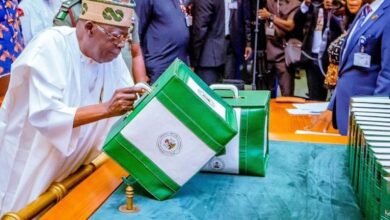CBN Issues One-Month Deadline For PoS Operators To Adopt Licensed Aggregators

The Central Bank of Nigeria (CBN) has directed that all Point of Sale (PoS) transactions must be routed through licensed Payment Terminal Service Aggregators (PTSAs), as part of a move to enhance the tracking and management of electronic transactions in the country. This directive, outlined in a circular posted on the CBN’s website, is aimed at ensuring greater transparency and efficiency in the payment system.
To address concerns of monopolizing the aggregation process, the CBN granted a second PTSA licence to Unified Payment Services Limited in April 2024. Previously, the Nigeria Interbank Settlement System Plc had held the sole licence, having been granted it in 2011. The introduction of a second aggregator is intended to offer acquirers (payment processors) more flexibility in their operations, allowing them to choose between the two licensed PTSAs.
The directive specifies that all PoS transactions, whether on physical or electronic terminals, must be routed through either of the two CBN-licensed PTSAs. Acquirers are also required to ensure that processors are certified by the relevant payment schemes, and PTSPs (Payment Terminal Service Providers) must ensure that their devices are configured to work with the chosen aggregators.
Additionally, both PTSPs and PTSAs are now mandated to submit detailed monthly reports to the CBN. PTSPs must report on the merchants and agents they manage, while PTSAs are required to report all transactions processed through their platforms. These reports are to be submitted within seven days of the end of each month.
The CBN has given all Payment Service Providers (PSPs) 30 days to regularize their operations with the PTSAs, warning that failure to comply will result in sanctions. Furthermore, in line with the Corporate Affairs Commission’s announcement on July 7, all PoS operators in the country must register with the commission by September 5, 2024.
This move marks a significant step in enhancing the integrity of Nigeria’s electronic payment system and improving the tracking of financial transactions.



